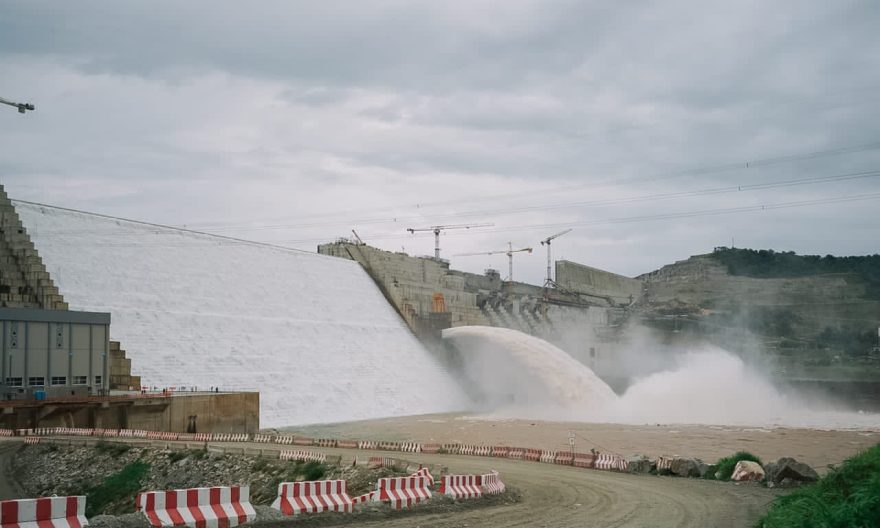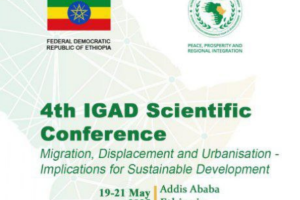
From the moment of its inception, the Great Ethiopian Renaissance Dam (GERD) or Abbay Dam has overcome a number of challenges and reached its 13 years of anniversary. The people and government of Ethiopia paid their arms and leg to finance and finish the dam by their own in order to be free from any external pressures. However, the nation has been subjected to many unwanted diplomatic pressures from both lower riparian nations and their allies.
Ethiopia, on this point, makes itself clear about the aim of building the dam through its diplomatic efforts. The country has let the world know that the sole reason for constructing one of the biggest dams in Africa is to liberate its people from the shackles of poverty and light their lives up not to harm any riparian nation.
Historically, there are different agreements on the usage and utilization of the Abbay River. The two major agreements have become the best weapon for the lower riparian nations. The 1929, which is a colonial agreement between Egypt and the United Kingdom, and the 1959 agreement signed between Sudan and Egypt aimed at monopolizing and controlling the Abbay. In good truth, both the agreements deliberately ignore the involvement of the upper riparian states especially Ethiopia and give the whole advantage to the lower ones.
The two colonial accords were aimed at giving the ultimate power and benefit to the lower riparian nations by signing the agreement only with those nations and ignore the upper riparian nations that are the source of the water.
Research documents stated that the 1929 colonial agreement was based on the outcome of political negotiations between Egypt and Great Britain in 1920s, and in particular on the report of the 1925 Abbay Waters Commission. The basic objective of the accord was to guarantee and facilitate an increase in the volume of water reaching Egypt.
Again, the 1959 Abbay accord was signed between United Arab Republic, Egypt, and Republic of Sudan is also known as the Abbay Control Projects that was intended to control the whole benefits beget from the water. Besides, the two republics alone agreed to achieve two major objectives: maximizing the two republics’ acquired rights of the water and construct two different dams in both nations.
Likewise, in the past many decades, the upper riparian countries had done nothing to use the water resource for their own due to multiple reasons and hand twisting colonial agreements. On the other side, the lower riparian countries have made use of the water for their economic and geopolitical power. They have also been advantageous from their gigantic dams on the Abbay. They still want things go as usual without any difference. Making them the sole beneficiaries is their ultimate goal, and the rest of the nation in the upper part of the river get nothing from the common natural resource that flows on their territory.
After the onset of the Abbay Dam, according to some reports, Ethiopia has not hesitated to call the lower riparian nations, both Egypt and Sudan, for negotiation to form an International Panel of Experts (IPoE) to find understanding of the benefits, costs and impacts of the dam. The IPoE recommended two studies to assess the environmental and socio-economic impacts of Abbay Dam and was interpreted by both the Egyptian and the Ethiopian governments.
Having held numerous tripartite meetings between Ethiopia and the lower riparian nations between 2013 and 2014, the parties could not find a common ground regarding the implementation of the IPoE recommendations and controversies were evolving around the constitution of a trilateral committee.
The negotiating parties had tried to find a way to resolve the dispute on the construction of the dam. Though the dam can bring various economic advantages for Ethiopia, the lower riparian has been resisting to put the argument to the table. According to a report, “The situation seemed to improve in the beginning of 2015 when tripartite negotiations were held in order to determine principles of cooperation. In March 2015, a ‘Declaration of Principles’ was signed by the leaders of Egypt, Sudan and Ethiopia, setting the foundations for an initial cooperation.”
Despite the fact that lower riparian nations are still refraining themselves to find a common ground, Ethiopian government is still inviting them for open negotiation and let the African Union mediate the issue. Ethiopia believes that African problems should be resolved by African solutions. To this end, Ethiopia slams the doors for external mediation, but the country is always ready to discuss any point with the concerned bodies including all of the Abbay Basin countries under the umbrella of the African Union.
Accordingly, Burundi’s admission into the Cooperative Framework Agreement (CFA) on Abbay waters has boosted Ethiopian hydro diplomacy efforts. Having stayed with The Ethiopian Herald Newspaper lately, Trans-boundary River Senior Advisor and Abbay Dam Technical Team Negotiator Engineer Gedion Asfaw said that Burundi’s admission is a significant development for Ethiopia’s hydro diplomacy efforts making marking another milestone in the cooperative management of trans-boundary waters.
Eng. Gedion said that the CFA, signed and ratified by six countries, paves the way for the establishment of the Abbay Basin Commission and replaces out-dated colonial-era agreements with a new management framework based on equitable utilization and cooperation. Ethiopian officials have been actively engaged in explaining the benefits and importance of the cooperative framework agreement. Consequently, he said, an increasing number of countries have embraced the CFA, showcasing the growing recognition of the necessity for collaborative water resource management.
By the same token, Abbay Dam National Panel of Experts and Technical Negotiating Team Chairperson Gedion Asfaw (Eng.) said that despite Egypt’s recent announcement of discontinuing its involvement in the Abbay Dam negotiation, Ethiopia has an unwavering commitment to resolve the outstanding technical and legal disparities.
He emphasized the importance of civilized discussion to address the sticking points. “It is crucial to keep the continuation of negotiations to find common ground and address the complexities of trans-boundary water management.” The expert pointed out that trans-boundary negotiations, including the Abbay Dam talks, require ample time and patience due to the inherent challenges of balancing national interests and reaching compromises.
Drawing on global experiences, Eng. Gedion indicated similar negotiations on cross-border resources often take more than a decade to resolve, underscoring the complexity of the issues at hand. “Ethiopia recognizes the significance of safeguarding its national interests while acknowledging that other countries are similarly protecting their own concerns.”
While convergence and agreement may take time, Ethiopia remains open to peaceful dialogue and firmly believes in the possibility of reaching compromises that address the concerns of all parties involved. He further highlighted that Ethiopia’s policy on trans-boundary waters centers around regional cooperation, peaceful resolution of issues, and adherence to internationally accepted principles of equitable utilization and causing no significant harm.
By adhering to its policy framework and promoting peaceful consultation, Ethiopia reaffirms its dedication to constructive dialogue as the primary means to resolve trans-boundary water issues and foster regional cooperation. Looking ahead, the trans-boundary rivers expert emphasized the need to capacitate Ethiopia’s human resources in hydro politics and water diplomacy. Efforts to train professionals in areas including hydro-diplomacy, water policy, and integrated water resource management are crucial for effectively representing Ethiopia’s interests on the international stage.
BY DANIEL ALEMAYEHU
THE ETHIOPIAN HERALD TUESDAY 2 APRIL 2024




